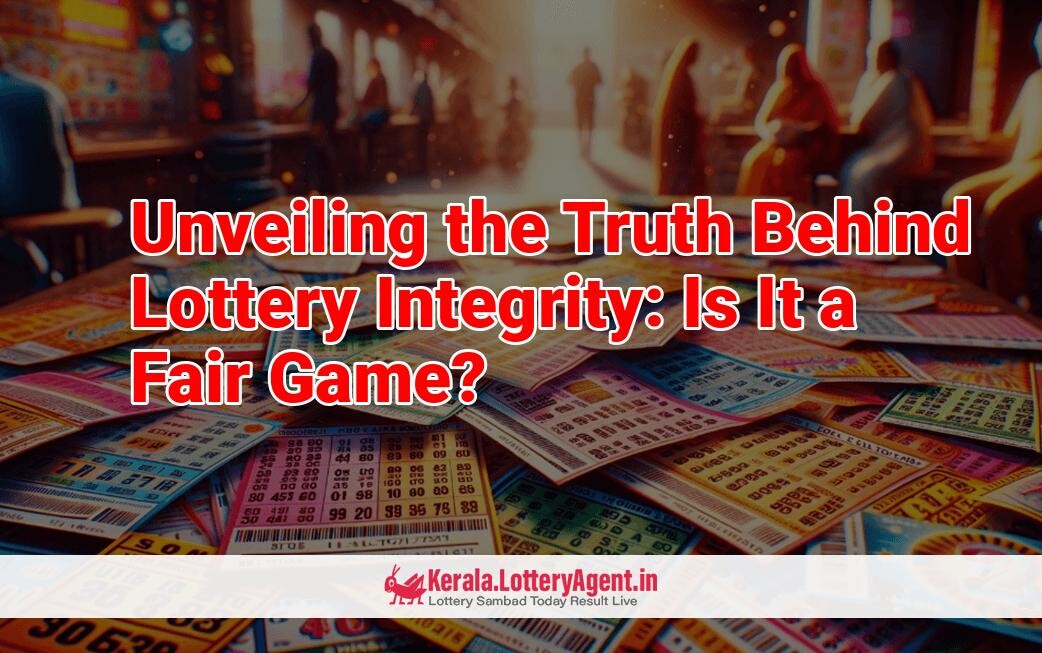
A ubiquitous source of hope to many, the lottery captivates millions of players worldwide with the enticement of life-changing jackpots. But the elusive nature of the grand prize often leads participants to ponder if behind the scenes, the lottery could be manipulated. Despite these concerns, we delve deeper to uncover the reality of lottery practices and address the persistent question: are lotteries truly rigged?
Key Takeaways:
Lottery draws are grounded in probability, a concept that many struggle with, hence leading to misconceptions about their legitimacy.
Top lotteries worldwide go to great lengths to maintain transparency and security, utilizing live televised draws, independent audits, and strictly controlled procedures to protect their integrity.
Instances of rigging are exceedingly rare and typically involve isolated incidents rather than systematic manipulation.
Trust in the game remains paramount, and adhering to officially licensed lottery providers is crucial for a fair play experience.
Examination into why some believe in lottery fixes sheds light on a common psychological reflex — the inability to win translates to an unjust system for some players. This stems from a lack of understanding of probability; the reality is that winning a lottery is inherently a long shot due to deliberately adverse odds integral to the game.
Concerns about the fairness of lottery draws often arise when information regarding the procedures and protocols followed by organizations is opaque. To combat such apprehensions, many lotteries bolster their reliability through transparent communication and live televised manual draws, such as those of Powerball and Mega Millions. However, skepticism peaks when lotteries employ digital number generation, fueling doubts about the legitimacy of results and the potential for digital tampering.
The worries are not constrained to national stages, as there is a plethora of lotteries catering to regional and local fanbases. Smaller scale operations frequently encounter trust issues, as some players feel these games are more susceptible to foul play. Nevertheless, official licensing and strict adherence to local laws assure that state lotteries prioritize maintaining their reputation over dubious practices to ensure their continued profitability.
Under the microscopic view, big-name lotteries like Mega Millions and Powerball demonstrate a commitment to fairness through exhaustive security measures. Officials rigidly safeguard the equipment, preparing each draw with a meticulous three-hour process, proving these minute-long events are anything but casual or reckless in execution. Moreover, implementing multiple sets of equipment, stored in high-security environments with complex access protocols, further ensures the sanctity of the draw.
Despite the commonsensical assurance of legitimacy, some players put their faith in the law of probability, which allegedly could predict winning lottery tickets, especially in the realm of scratch-off cards. However, these strategies fall short, assuring neither a win nor a substantial prize, illustrating the fallacy that such techniques can influence a game that is fundamentally chance-based.
The lottery industry devotes significant effort to reassure the public of their games’ righteousness, yet the internet bubbles with conspiracy theories on potential rigging. Among them, stories circulate about predetermined jackpot locations, mafia involvement, and manipulative number selection. Despite these colorful narratives, there is no substantive evidence of systemic corruption within officially sanctioned lotteries — industries that would have little to gain and everything to lose by betraying public trust.
The counterpoint to these hearsays can be found in strict regulations and security protocols, constant monitoring by licensing bodies, and the legal mandate in many jurisdictions for winners to reveal their identities, all designed to preserve the game’s integrity. Perhaps the most potent reassurance lies in the sheer economics of the matter: governments claim substantial percentages of each jackpot in taxes — a form of revenue that is entirely legitimate and vastly outweighs the dubious benefit of undermining the game’s credibility.
Even amid all the checks and veracity, some incidents of fraud have seeped through, as exemplified by the Hot Lotto scandal involving a security officer who attempted to snatch millions through code manipulation. While these occurrences are stark reminders of the potential for maleficence, they reinforce the rarity of such acts in the broader landscape of the lottery industry, which is characterized more by its rigorous prevention than its susceptibility to deceit.
Lotteries thus continue to cast a spell of possibility over the masses. Although the dream of hitting the jackpot can be an exhilarating chase, one can rest easy knowing that it’s fortune, not fraud, that determines the outcome. With this knowledge in hand, players worldwide are free to indulge in the thrill of chance, knowing that the sanctity of the game is thoroughly protected.











